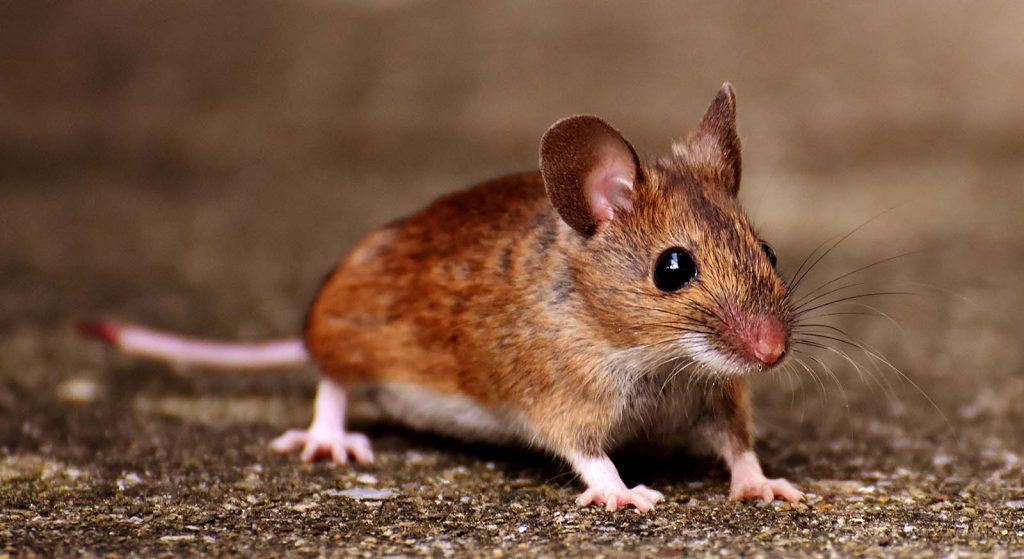Before commencing with any pest treatment, a survey of the site should take place to identify the extent of the mouse infestation. We are pest control specialists and assessing the area and the likely entry points are key to ensuring success and reducing the chances of a re-infestation.
Mice can carry fleas and diseases which can spread to humans and pets. If left untreated mice can cause extensive damage to your property because of gnawing.
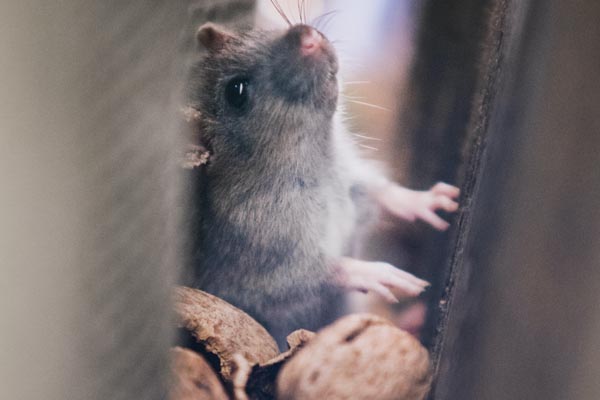
What are the Signs of Mice?
The signs of mice will depend on whether they have nested, or they are just entering regularly to gain access to food. The main tell-tale sign of mice is droppings. Mice defecate as they walk therefore leaving a trail of tiny pellet like poo wherever they go.
Other signs could be scratching sounds in your walls, usually heard at night-time. If mice gain access to your loft, then you will hear their footprints as they scurry across the ceiling. This can be very loud and often people mistake the sound of mice for larger rodents or squirrels but the reason for this is that they are running on a thin layer of plasterboard making the sound very loud.
Other than in your wall cavities and loft mice also tend to hide under kitchen units or refrigerators where they can access a food resource. They are active after dusk, so it is not uncommon for them to be spotted scurrying across the floor.
How do you get rid of Mice?
There are a few different methods for getting rid of mice. The method used will depend on the severity and location of the infestation. Your pest controller will be able to offer the best advice once an assessment has been carried out.
Will Pest Control Use Traps or Poison to Kill the Mice?
Mouse Traps
Mouse traps use bait to attract the mouse onto a small platform which triggers a metal arm to come down and trap the mouse. These types of traps are called snap traps and although they don’t sound very nice, they do kill the mice instantly, so they do not suffer.
Your pest controller will usually set several traps then re-visit within a few days to remove the dead mice. They may reset the traps depending on whether they think all the mice have been caught. A tell-tale sign of there still being mice can be that the bait is gone from all the activated traps meaning that there are still live mice taking food.
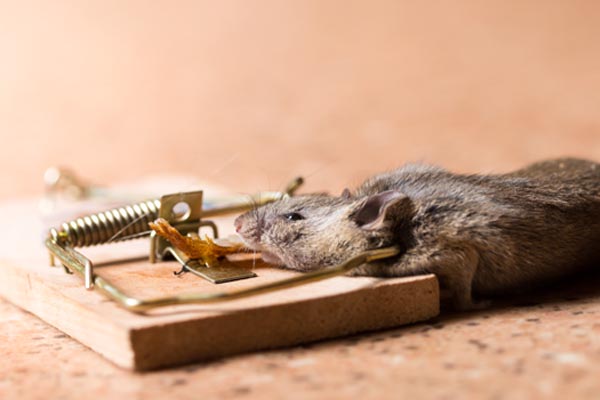
Poison
Poison can be used in areas which are hard to access such as lofts or wall cavities. Your pest controller will have different types of poison, usually either seeds or pellets or blocks.
Seeds or pellets can be left in special trays for the mice to find and once eaten they cause the mouse to die. They will often take all the food from the tray in one night, taking it piece by piece back to the nest. The problem with this that they do not necessarily eat the feed but just store it in the nest.
Blocks work slightly differently. They are heavy (for a mouse) and the mouse cannot move them. They must therefore eat the poison straight away meaning they immediately ingest it, and the poison can quickly take effect. It is common that once the poison begins to take effect the mouse will leave the property and go off somewhere else to die meaning that body recovery is not always necessary.
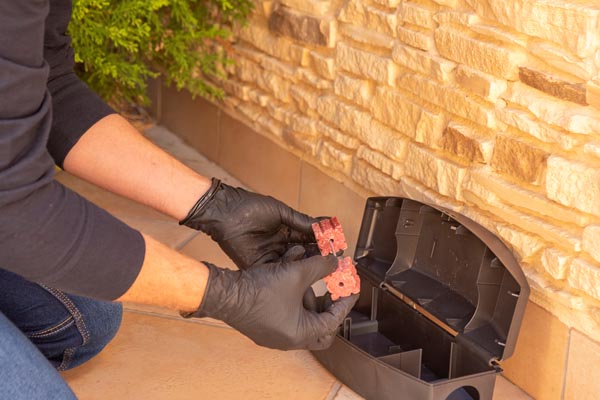
How Do Mice Get In my House?
You would be amazed at the way mice can enter a house. Although they look big, they are capable of squeezing through the smallest of holes or cracks. Believe it or not a mouse can squeeze its body through a hole the size of less than 1cm.
Mice are also great climbers with the ability to climb external walls and guttering. Although common entry points are usually below knee high or first floor roofs.
Our pest control experts will look for possible entry points during his visit to avoid future mice infestations.
What Attracts Mice to My House?
When a mouse enters your home, it is usually looking for three things. Food, warmth, and a safe place to nest.
Once mice reach around 6-8 weeks, they are capable or reproducing. Although they tend to breed mainly in the summer they do breed throughout the year if they can find the right nesting conditions, hence looking for a warm safe place to nest in your house.
Mice are always looking for food, it’s their main instinct to collect and store as much food as possible to keep them going through the harsh winter months. They have a keen sense of smell and very sensitive whiskers which they use to detect crumbs of food as they scurry around.
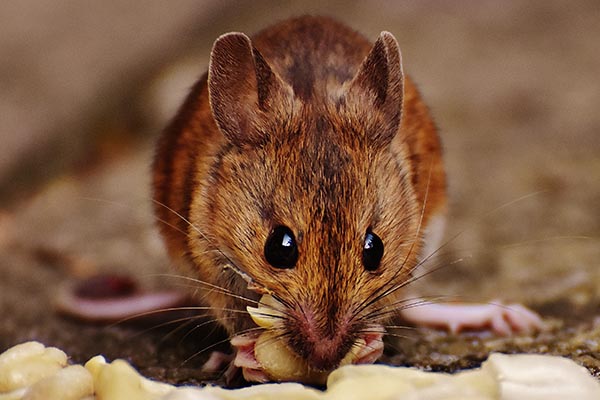
How Much is Pest Control for Mice?
The cost of treatment for a mouse infestation can vary and will depend on the severity of the infestation, how many visits are required. It will also depend on the method of treatment required. Your pest controller will talk you through the options for treatment.
Can Exterminators Get Rid of Mice Permanently?
Yes. Your pest controller should be able to permanently get rid of mice and their nest.
We cannot guarantee that other mice will not enter your property at a later date, but part of our treatment process will include looking for and blocking possible entry points.
It is important that once your mouse infestation is treated, you clean the area thoroughly using anti-bacterial cleaner or a mixture of bleach and water.
Mice leave a trail of urine wherever they go, and this smell can be an attraction to other mice as it shows them the way to a food source.
For a thorough guide on cleaning up after a rodent infestation, please speak to your pest controller or visit the CDC website.
How Can I Book a Pest Control Treatment for Mice?
FurBeGone Pest Control offer a free survey before, and treatment is undertaken. We cover Stevenage, Letchworth, Hitchin, and surrounding villages.
Contact us through our website here or for 24-hour callout please call us on 01438 387005.

